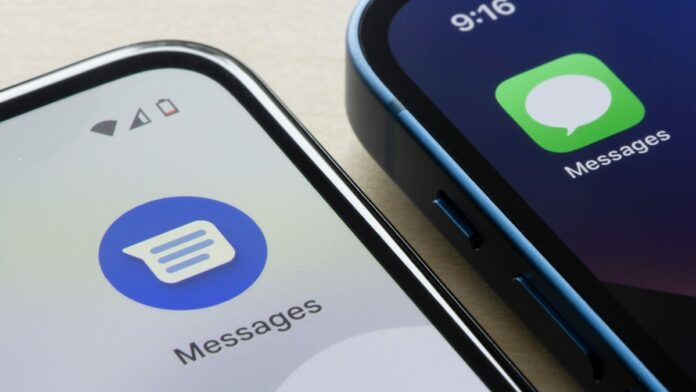The green bubble stigma faced by Android users who send messages to their friends with iPhones is real—even the U.S. government acknowledges it.
“Many non-iPhone users… experience social stigma, exclusion, and blame” when messaging people with iPhones, the Department of Justice stated in its landmark antitrust lawsuit against Apple on Thursday. However, the problems go way beyond simply the color of a text message. In the complaint, the DOJ highlighted the friction and frustration associated with “breaking” chats, which refers to the poor group texting experience between iPhone and Android users in individual or group chats.
Any Android user who has texted an iPhone user, and vice versa, has no doubt experienced these issues. In mixed chat groups, pictures and videos get pixelated, messages can take longer to send or not send at all, and reactions are written out instead of displayed as reaction icons, among many other annoying issues.
“This signals to users that rival smartphones are lower quality because the experience of messaging friends and family who do not own iPhones is worse—even though Apple, not the rival smartphone, is the cause of that degraded user experience,” the DOJ states, adding that the effect of Apple’s decisions is particularly powerful among teenagers.
While the DOJ’s focus on iMessage makes sense—the agency is arguing that Apple uses its exclusive messaging system to degrade rival smartphones and apps to protect itself from the competition—its acknowledgment of the cultural stigma caused by green bubbles is surprising. It certainly gives the issue, which has elements that are both serious (degraded experiences) and ridiculous (the color of a message), more importance.
After the lawsuit was announced, some Android users celebrated the DOJ’s lawsuit, likening it to the agency taking up arms for their cause.
“[T]hose of us with mixed family group chats would love to see equality among blue and green bubbles 😊🙏,” Jeff Richards, a venture capitalist at GGV Capital, said in a post on X, formerly known as Twitter.
Others, however, effectively sneered at the reference to green bubbles and the problems they face, arguing that the DOJ was essentially calling Android users a “protected class” or stating that “people with green bubbles should be shunned.”
“If they allow iMessage on Android, then how will we tell who’s a loser?” podcaster Josh Barro said.
In the end, the government may finally put an end to the green vs. blue bubble war. If it succeeds, it could lead people to ask themselves whether they prefer an Apple or an Android phone when free from social pressure.
A version of this article originally appeared on Gizmodo.


